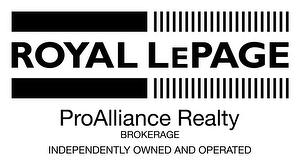For Buyers
Buyer's Realtors
Why You Need a Buyer's Realtor – And Why We Have Three!
Let’s face it—purchasing a home, whether it’s your first or fifteenth, is a BIG DEAL! It’s one of the largest financial and emotional investments you’ll ever make. That’s why having a dedicated buyer’s realtor on your side isn’t just a good idea—it’s essential.
At Your Dream Team Quinte, we take this one step further. We don’t just have one buyer’s specialist—we have three! Kathleen, Kirsten, and Miranda each bring their own unique strengths and expertise to the home-buying process, ensuring you have the best possible experience from start to finish.
Why Work with a Buyer’s Realtor?
When you’re buying a home, it’s easy to get swept up in the excitement of finding ‘the one.’ But there’s so much more to consider beyond a beautiful kitchen or a spacious backyard. A dedicated buyer’s realtor helps with:
Finding the Right Home – We don’t just show you listings; we take the time to understand your needs and lifestyle to match you with the perfect home.
Negotiating the Best Price & Terms – A great realtor knows how to secure the best deal, ensuring you don’t overpay and that your contract terms work in your favour.
Identifying Updates & Future Potential – We have the experience to spot hidden gems, potential red flags, and renovation possibilities that could add long-term value to your investment.
Meet Our Buyer’s Specialists:

Kathleen – The Strategist
Kathleen has a keen eye for market trends and pricing strategies, and spotting (potential hidden) gems. She ensures her clients make informed decisions by analyzing comparables and negotiating fiercely on their behalf to ensure they are getting the best possible purchase. With Kathleen on your side, you can trust that you’re making a sound financial investment and finding something truly worthwhile. She puts herself in your shoes, truly undertaking all your needs and desires and finding you the best home for your future!

Kirsten – The Connector
With an extensive network and deep local knowledge along with great design and style sense, Kirsten helps buyers find homes and see beyond the obvious. She’s all about understanding what you truly want in a home and making sure you feel confident and comfortable every step of the way. With her husband in the trades, she has lots of connections to ensure even if you're buying a renovation, she can send you the right resources to complete any project!

Miranda – The Visionary
Passionate about old homes, design, and renovations, Miranda sees potential where others might not. She helps buyers envision possibilities, whether it’s a small update or a full transformation, making sure you invest in a home that grows with you. She has personal experience in income properties, cottages and rentals, along with Victorian and historic homes, with an abundance of local connections and renovation experience. She is a force, and one you'd want on your side!
Your Dream Team is Here for You
Buying a home isn’t just about closing a deal—it’s about finding the right place to call home. With Kathleen, Kirsten, and Miranda working for you, you’ll have the expertise, negotiation skills, and vision to make your purchase a smart and exciting one.
If you’re thinking about buying, let’s chat! We’d love to help you find your dream home!
The elements of an offer
Here’s a quick reference to everything you need to know about making an on offer on a property.
1. Price
Depends on the market and the buyers, but generally, the price offered is different from the asking price.
2. Deposit
Shows the buyer’s good faith and will be applied against the purchase price of the home when the sale closes. Your agent can advise you on a suitable amount to offer.
3. Terms
Includes the total price the buyer is offering as well as the financing details. The buyer may be arranging his/her own financing or may ask to assume your existing mortgage if you have an attractive rate.
4. Conditions
These might include "subject to home inspection," "subject to the buyer obtaining financing," or "subject to the sale of the purchaser’s property."
5. Inclusions and exclusions
These may include appliances and certain fixtures or decorative items, such as window coverings or light fixtures.
6. Closing or possession date
Generally, the day the title of the property is transferred to the buyer and funds are received by the seller, unless otherwise specified (except in Manitoba and Quebec).
Qualifying for a mortgage
Your Dream Team Quinte can arrange to have you pre-qualified for a mortgage before you start shopping for a home. It’s easy, and you’ll avoid possible disappointments down the road if you fall in love with a place, then find out you can’t afford it. Plus, once you do find the perfect home, it will mean you can make an offer immediately.
Here’s how mortgage approval works: the amount of money you qualify for, plus the amount of cash you can put down equals the amount you can afford to spend on a home. Most lending institutions won’t allow more than about 30% of your income to support a mortgage. If you have other debts, they usually won’t allow your debts and your mortgage to exceed 40% of your income.
Finalizing your mortgage
Once you’ve found the home you want to buy, you’ll need to finalize your financing. You’ll need to provide your lender with the following documents:
1. A copy of the real estate listing of the property. If the home is still to be built, the mortgage lender will need to see the architect’s or builder’s plans and details on lot size and location.
2. A copy of the offer to purchase or the building contract, if this document has been prepared.
3. Documents to confirm employment, income and source of pre-approval.
4. If you have a pre-approved mortgage, it’s a simple matter of finalizing a few details with your mortgage specialist.
Choosing a neighbourhood
You’re not just buying a home - you’re buying a location. And even the most perfect house won’t feel right if you’re in the wrong neighbourhood. Educate yourself about the area so you’ll choose wisely - and end up being happy with your decision.
- Are you close to shopping and recreation? Being close to stores, parks, recreational facilities, a post office and dry cleaners will save you time.
- Do people in the area take care of their homes? Explore the neighbourhood, keeping an eye out for signs of neglect (overgrown lawns, houses in need of paint, trash and junked appliances littering yards). A run-down neighbourhood can drive down your property value.
- Are there schools nearby? If you have children, the proximity and quality of schools is key. Some schools will provide data (i.e. average test scores) that can determine quality. Talking to neighbours with children can be helpful, too.
- Is there good access to transportation? Living near public transport and/or major highways can mean an easier commute to work.
- Is it safe? Check with the local police department - they may be able to provide statistics about break-ins or other crimes.
- Will the home increase in value over time? Homes in some neighbourhoods appreciate faster than others. Research the selling prices of homes in over the past decade or so to predict future trends. Your agent may be able to provide helpful data.
- Is it quiet? Listen for traffic noise, barking dogs, airplanes and any other noises that might bother you. Return to the neighbourhood at different times of the day to get an accurate impression.
Understanding land transfer taxes
If you’re buying a home in a large Canadian centre, you’ll need to add land transfer taxes to your list of closing costs.
Unless you live in Alberta, Saskatchewan, or rural Nova Scotia, land transfer taxes (or property purchase tax) are a part of the homebuying process. These taxes, levied on properties that are changing hands, are the responsibility of the purchaser. Depending on where you live, taxes can range from 0.5% to 2% of the total value of the property.
Many provinces have multi-tiered taxation systems that can seem complicated. If you purchase a property for $260,000 in Ontario, for example, 0.5% is charged on the first $55,000, 1% is charged on $55,000 to $250,000, while the $250,000 - $400,000 range is taxed at 1.5%. Your total tax bill? $2,375.00.
Land transfer taxes by province
British Columbia
Up to $200,000 X 1% of total property value
From $200,000 up X 2% of total property value
Manitoba
Up to $30,000 N/A
From $30,000 to $90,000 X 0.5% of total property value
From $90,000 to $150,000 X 1% of total property value
From $150,000 up X 1.5% of total property value
Ontario
Up to $55,000 X 0.5% of total property value
From $55,000 to $250,000 X 1% of total property value
From $250,000 to $400,000 X 1.5% of total property value
From $400,000 up X 2% of total property value
Quebec
Up to $50,000 X 0.5% of total property value
From $50,000 to $250,000 X 1% of total property value
From $250,000 up X 1.5% of total property value
Noval Scotia
Halifax Metro
1.5% on total property value
Outside Halifax County
Check with local municipality
Title insurance explained
What is title insurance? Do you need it? Here’s some information that can help you make an informed decision.
What does "title to property" mean?
Title is the legal term for ownership of property. Buyers want "good and marketable" title to a property. "Good title" means title appropriate for the buyer’s purposes; "marketable title" means title the buyer can convey to someone else.
Why do I need title insurance?
Prior to closing, public records are searched to determine the previous ownership of the property, as well as prior dealings related to it. The search might reveal existing mortgages, liens for outstanding taxes, utility charges, etc., registered against the property. At closing, the buyer expects property that is free of such claims.
Sometimes problems regarding title are not discovered before closing. They can make the property less marketable when the buyer subsequently sells, and can cost money to fix. For example, the survey might have failed to show that a dock and boathouse built on a river adjoining a vacation property was built without permission. The buyer of the property could be out-of-pocket if he is later forced to remove the dock and boathouse. Or, the property might have been conveyed to a previous owner fraudulently, in which case there is the risk that the real owner may come forward at some point and demand their rights with respect to the property.
Who is protected with title insurance?
Title insurance policies can be issued in favour of a purchaser, a lender, or both. Lenders will sometimes require title insurance as a condition of making the loan. Title insurance protects purchasers and/or lenders against loss or damage sustained if a claim that is covered under the terms of the policy is made.
Types of risks that are usually covered include:
- survey irregularities
- forced removal of existing structures
- claims due to fraud, forgery or duress
- unregistered easements and rights-of-way
- lack of pedestrian or vehicular access to the property
- work orders
- zoning
- set back non-compliance or deficiencies, etc.
For a risk to be covered, it has to have existed as of the date of the policy. As with any type of insurance policy, certain types of risks might not be covered. For example, native land claims and environmental hazards are normally excluded. Be sure to talk to your lawyer about the types of risks that may not be included in your policy.
The insured purchaser is protected against actual loss or damage sustained up to the amount of the policy, which is based on the purchase price. As well, some policies have inflation coverage, which means that if the fair market value of the property increases, the policy amount will also increase.
How long will I be covered?
Title insurance remains in effect as long as the insured purchaser has title to the land. Some policies also protect those who received title as a result of the purchaser’s death, or certain family members (e.g., a spouse or children) to whom the property may have been transferred for a nominal amount.
The premium for title insurance is paid once, at the time of purchase. In Canada, the purchaser generally pays for the title insurance, though there can be situations where the seller pays for it.
Protection and peace of mind
Title insurance can help ensure that a closing is not delayed due to defects in title. And if an issue arises, the title insurance covers the legal fees and expenses associated with defending the title and pays in the event of loss.

